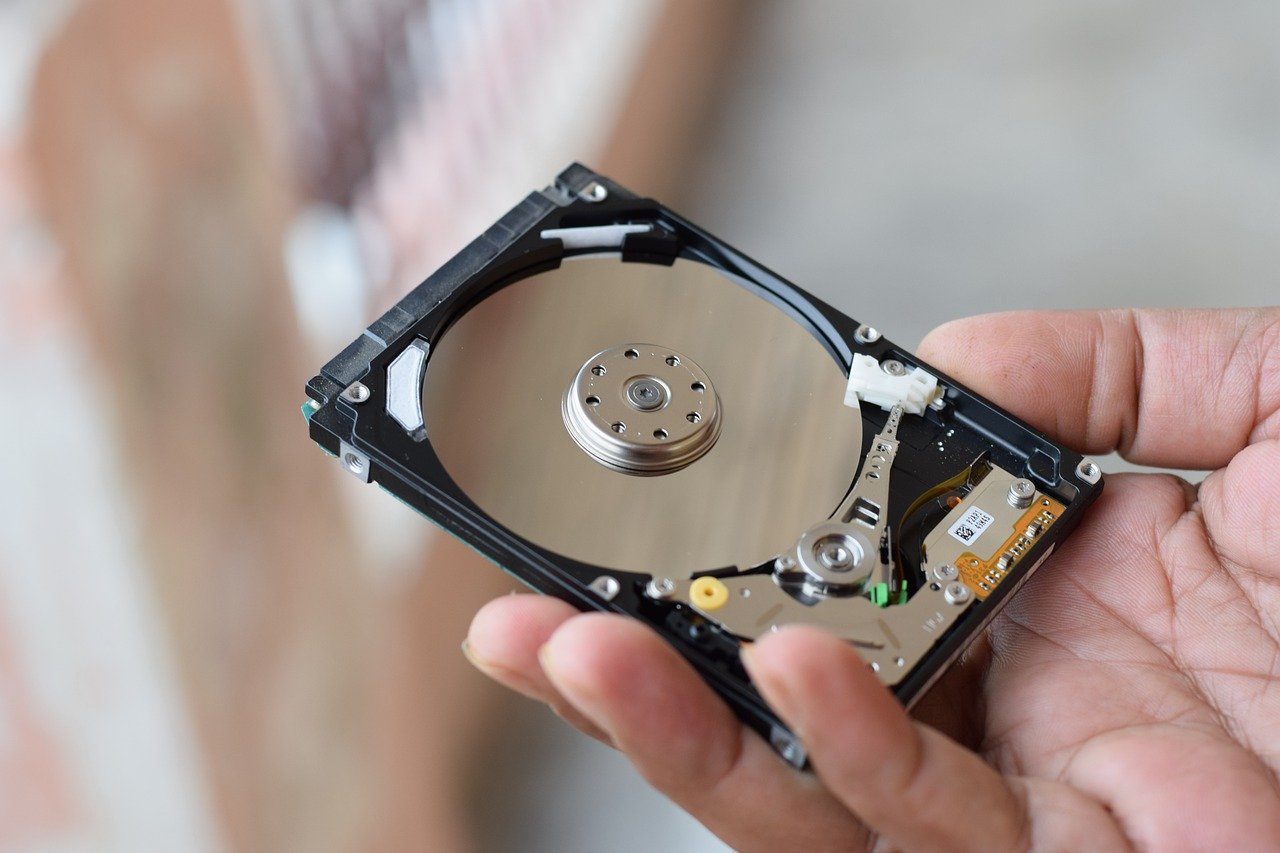Have you ever wondered why your computer suddenly freezes up, leaving you stuck with an unresponsive screen?
Computer freezing up is a common annoyance, and in this article, we'll uncover the seven most common reasons behind it.
By understanding these causes, you can take steps to prevent those frustrating freezes and keep your computer running smoothly.

Overheating Issues
Overheating can lead to computer freezing when the temperature inside the computer rises beyond its safe operating limits. Here's how it happens:
- Thermal Throttling: Overheating triggers the CPU and GPU to slow down to avoid damage, causing applications to freeze.
- System Instability: Excessive heat can make components unstable, leading to crashes and freezes.
- Dust Accumulation: Dust inside the computer can block airflow, causing higher temperatures and more freezes.
- Fan and Cooling Issues: Malfunctioning cooling systems can't dissipate heat effectively, leading to temperature spikes and freezes.
- Long-Term Damage: Prolonged overheating can harm components, causing permanent defects and system instability.
The Role of Dust and Inadequate Cooling
Dust and inadequate cooling are often overlooked causes of computer freezing. Let's now explore how they impact your system:
- Airflow Blockage: Accumulated dust can obstruct the computer's airflow, preventing efficient cooling.
- Heat Trapping: Dust acts as an insulator, trapping heat and raising internal temperatures.
- Fan Inefficiency: Dust on fans can reduce efficiency, hindering heat dissipation.
- Overheating Components: Inadequate cooling can lead to overheating of crucial components, causing freezing.
- System Strain: Excessive heat can strain the entire system, making it prone to crashes and freezes.
- Preventive Measures: Regular cleaning and maintaining cooling systems can mitigate these issues and prevent freezes.
Software Conflicts
Conflicting software can wreak havoc on your computer's stability, often resulting in frustrating freezes. In this section, we'll delve into how these conflicts disrupt your system.
- Resource Competition: Conflicting software competes for resources, causing performance issues and freezes.
- Crashes and Errors: Software conflicts lead to crashes and errors, resulting in system freezes.
- Compatibility Issues: Incompatible programs cause instability and unexpected freezes.
- Memory Leaks: Certain conflicts lead to memory leaks, depleting RAM and causing freezing.
- Resolution: Identifying and resolving conflicts is vital for system stability and freeze prevention.
How Outdated or Corrupted Programs Can Contribute
Outdated or corrupted programs can quietly undermine your computer's performance, often culminating in frustrating freezes. In this section, we'll uncover how these issues can play a significant role in system disruptions.
Now, let's explore how outdated or corrupted programs can contribute to computer freezes:
- Software Vulnerabilities: Outdated programs may contain security vulnerabilities that can lead to system crashes and freezes.
- Compatibility Problems: Incompatibility between older software and updated operating systems can result in instability and freezing.
- Data Corruption: Corrupted program files can disrupt normal system processes, causing sudden freezes.
- Performance Degradation: Outdated or damaged programs can strain system resources, leading to slow performance and potential freezes.
- Resolution: Regularly update and maintain your software to mitigate these issues and maintain system stability.
Hardware Problems
Hardware failures are a potential culprit behind those frustrating computer freezes. Understanding how malfunctioning hardware can lead to these issues is crucial for effective troubleshooting.
Here, we'll explore five vital hardware-related reasons for computer freezes:
- RAM Issues: Faulty or failing RAM can lead to memory errors, crashes, and freezes.
- Hard Drive Problems: Malfunctioning hard drives can cause data corruption and system freezes.
- GPU Troubles: Graphics card failures can result in visual glitches, crashes, and freezes.
- Motherboard and Power Supply Issues: Hardware problems in these components can lead to random system freezes.
- Cooling and Overheating: Inadequate cooling can cause overheating, leading to hardware malfunctions and system freezes.
The Significance of RAM, Hard Drive, and GPU Issues
The significance of RAM, hard drive, and GPU issues lies in their potential to disrupt your computer's performance and stability, often leading to system freezes:
RAM Issues:
- RAM is essential for multitasking.
- RAM problems can cause errors and freezes.
- Fixing RAM issues is crucial for smooth performance.
Hard Drive Problems:
- Hard drives store data and software.
- Issues lead to errors, data loss, and freezes.
- Timely detection and resolution are vital.
GPU Troubles (Graphics Processing Unit):
- GPUs handle graphics tasks.
- Problems result in visual glitches and crashes.
- Ensuring GPU functions is crucial for multimedia and gaming.

Driver Problems
Outdated or incompatible drivers disrupt hardware communication with the OS, causing instability, crashes, and freezing. Updating drivers is crucial for system stability, ensuring your computer functions smoothly and efficiently.
The Importance of Keeping Drivers Up to Date
Keeping your drivers up to date is vital for maintaining your computer's performance, security, and stability. Here are five key reasons highlighting the importance of timely driver updates:
- Enhanced Performance: Updated drivers improve hardware performance.
- Security Patches: Updates protect against malware and threats.
- Compatibility: Ensures smooth operation with the latest software.
- Bug Fixes: Addresses known issues, preventing glitches.
- New Features: Unlocks hardware's full potential for a better experience.
Malware and Viruses
Malware poses severe risks, such as stealing data, corrupting files, and disrupting systems. It can spread through networks, compromising others' security. Preventing malware is crucial to safeguard your digital life and ensure smooth computer operation.
How Malware Can Lead to System Freezes
Malware can directly cause system freezes. Let's explore how different types of malware compromise computer stability:
- Resource Drain: Malware consumes resources, leading to performance degradation and freezes.
- Process Interference: Some malware disrupts critical processes, causing instability and crashes.
- Payload Effects: Certain malware payloads disrupt system operations, resulting in freezes.
- Spyware and Keyloggers: These malware types overload resources, leading to freezing.
- Resolution: To prevent malware-induced freezes, use antivirus software and perform regular scans.
Insufficient System Resources
Running too many applications simultaneously can strain your computer's resources, leading to performance issues and potential freezes. Here's how it happens:
- Resource Competition: Many apps compete for limited system resources.
- Resource Exhaustion: Running multiple resource-intensive apps depletes available RAM and CPU.
- Slowdowns and Freezes: Resource scarcity leads to slow performance and possible freezes.
- Unresponsive Behavior: With stretched resources, the computer becomes unresponsive.
- Resolution: To prevent strain and freezes close unused apps and manage resources wisely.
The Role of Insufficient RAM and Disk Space
Insufficient RAM and disk space play a crucial role in causing computer freezes:
- Insufficient RAM: Limited RAM causes performance issues and eventual freezes when running multiple apps.
- Low Disk Space: Scant disk space disrupts file and process management, leading to instability and freezes.
- Swap File Issues: Overreliance on the swap file can slow performance, and cause freezes if the hard drive is nearly full.
- Resolution: Ensure adequate RAM, free up disk space and monitor storage to prevent resource-related freezes.
Operating System Glitches
Operating system (OS) issues can lead to freezing by disrupting the normal functioning of your computer in the following ways:
- Software Conflicts: Incompatible software can lead to system instability and freezes.
- Driver Problems: Outdated or incompatible drivers may cause crashes and freezes, especially with hardware.
- File System Errors: Corrupted OS files can result in errors, impacting system stability and causing freezes.
- Updates and Patches: OS updates can introduce bugs or compatibility issues, leading to disruptions and freezes.
- Resource Management: Poor OS resource handling can cause shortages, resulting in slowdowns and freezes.
Regular OS updates are crucial because they enhance security with critical patches, improve system stability by addressing bugs, and ensure compatibility with the latest software and hardware, preventing potential system disruptions and security risks.
Conclusion
In conclusion, knowing the common reasons for computer freezes empowers users to maintain a stable and efficient computing experience.
Addressing issues like overheating, software conflicts, and driver updates can reduce interruptions and ensure a more reliable digital journey through preventive measures and regular maintenance.




